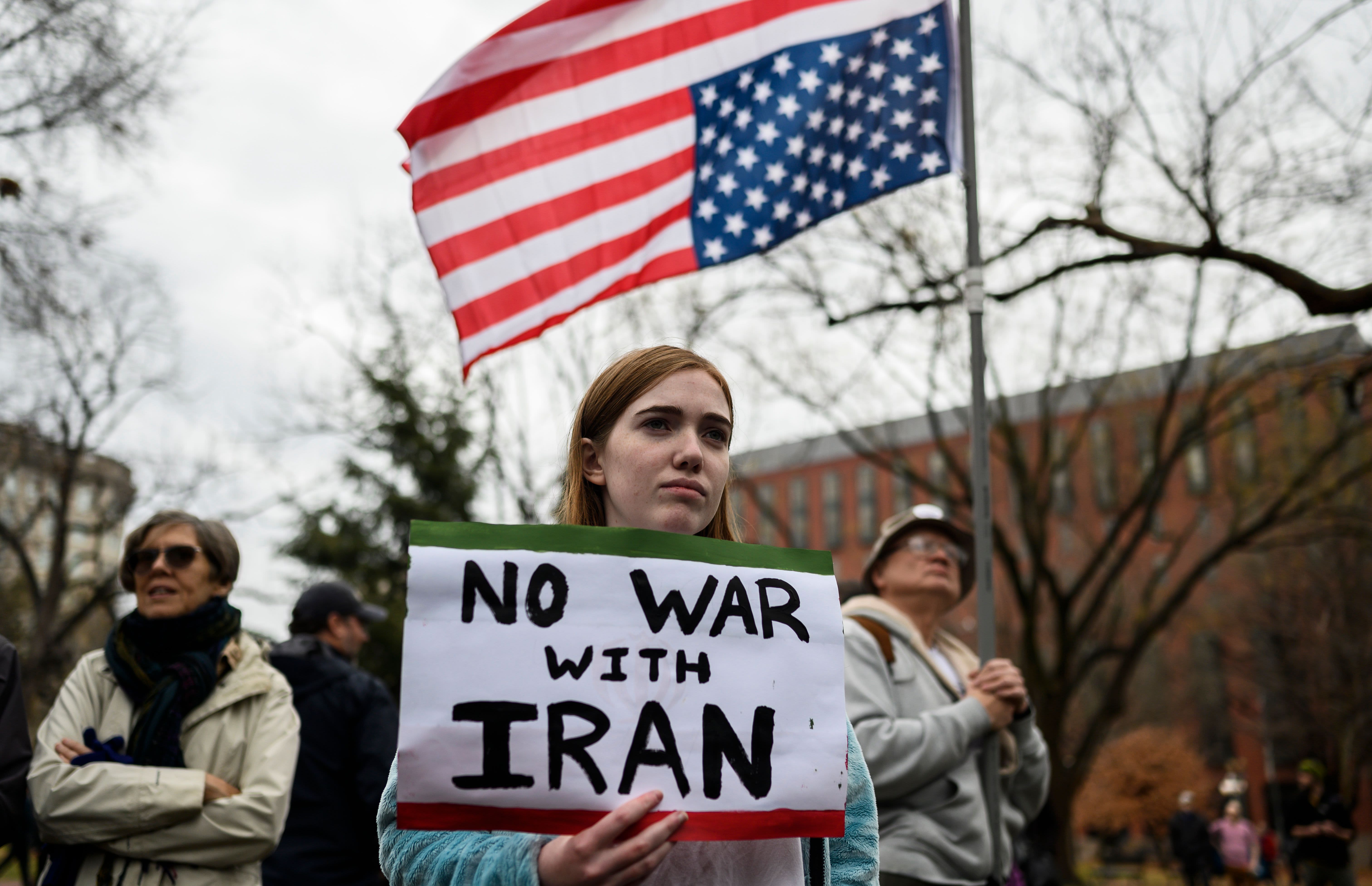Hits: 44

Anti-war activist protest in front of the White House in Washington, DC, on January 4, 2020.
Andrew Caballero-Reynolds | AFP | Getty Images
“Lethal conflict” between Iran and the U.S. is a risk in 2020, but the scale of the threat posed by Tehran could be overexaggerated, according to Eurasia Group.
In a note on Monday, Eurasia Group President Ian Bremmer and Chairman Cliff Kupchan outlined the consultancy’s top risks for 2020.
While they acknowledged that Iran was indeed a geopolitical risk, Bremmer and Kupchan claimed that “neither Trump nor Tehran wants all-out war.”
“The failure of U.S. policy toward Iran, Iraq, and Syria creates significant risks for regional stability,” the authors said. “These include a lethal conflict with Iran (and) upward pressure on oil prices.”
“Deadly skirmishes inside Iraq between U.S. and Iranian forces are likely,” the note added. “Iran will disrupt more tanker traffic in the Persian Gulf and hit the U.S. in cyberspace. It may also use its proxies in other Middle East countries to target U.S. citizens and U.S. allies.”
But Eurasia noted that media speculation around the escalating tensions had created a “red herring” relating to the risk posed by Tehran.
“The new ‘axis of evil’ — Iran, North Korea, Venezuela, and Syria — is unlikely to blow up in 2020, despite the headlines,” they said. “Iran represents the biggest threat, but neither Trump nor Tehran wants all-out war.”
Election risks
Among other risks for global investors and market participants, the U.S. election was identified by Eurasia as the biggest threat for 2020.
“This year, U.S. institutions will be tested in unprecedented ways,” Bremmer and Kupchan said. “We face risks of a U.S. election that many will view as illegitimate, uncertainty in its aftermath, and a foreign policy environment made less stable by the resulting vacuum.”
Describing the election as “a U.S. Brexit,” the authors warned that much of the risk would arise from the result being contested — whether or not Trump emerged victorious.
“Either scenario would create months of lawsuits and a political vacuum, but unlike the contested Bush-Gore 2000 election, the loser is unlikely to accept a court-decided outcome as legitimate,” they speculated.
Tech divide
Another key risk this year would be the “decoupling” of the American and Chinese technology sectors, according to Eurasia.
Noting that the divide had already disrupted core areas such as semiconductors, cloud computing, and 5G, they warned that 2020 could see the split impact the broader economy.
Some tech experts have speculated that a division between U.S. and Chinese technology could eventually lead to the creation of two separate internets — one led by China, another by the U.S. — a phenomenon dubbed the “splinternet.”
Eurasia also warned that the technology separation would provoke further political clashes between the U.S. and China.
“The two sides will continue to use economic tools in this struggle — sanctions, export controls, and boycotts — with shorter fuses and goals that are more explicitly political,” analysts said in the note.
Domestic politics
Elsewhere, rising nationalism in India was flagged as a risk for the year ahead.
“Emboldened state-level opposition leaders will directly challenge the central government, leaving (Prime Minister Narendra) Modi with less room for manoeuvre on economic reform at a time of slowing growth,” Eurasia’s note said.
Europe’s geopolitical landscape was also identified as a threat to markets, particularly in terms of antitrust officials continuing to “battle” American tech giants.
However, when it came to domestic political risks, they speculated that Europe — alongside other advanced democracies like Japan and the U.S. — were well positioned to withstand the rise of populism.
Eurasia also noted that market risks arising from Britain would subside as the country was given a “much-needed break from Brexit madness” following Boris Johnson’s landslide win in the U.K.’s December election.
While risk relating to the U.K. was expected to lessen, ongoing political instability in Latin America, Turkey and the Middle East was highlighted as a risk to markets and investors in 2020.
Be the first to comment